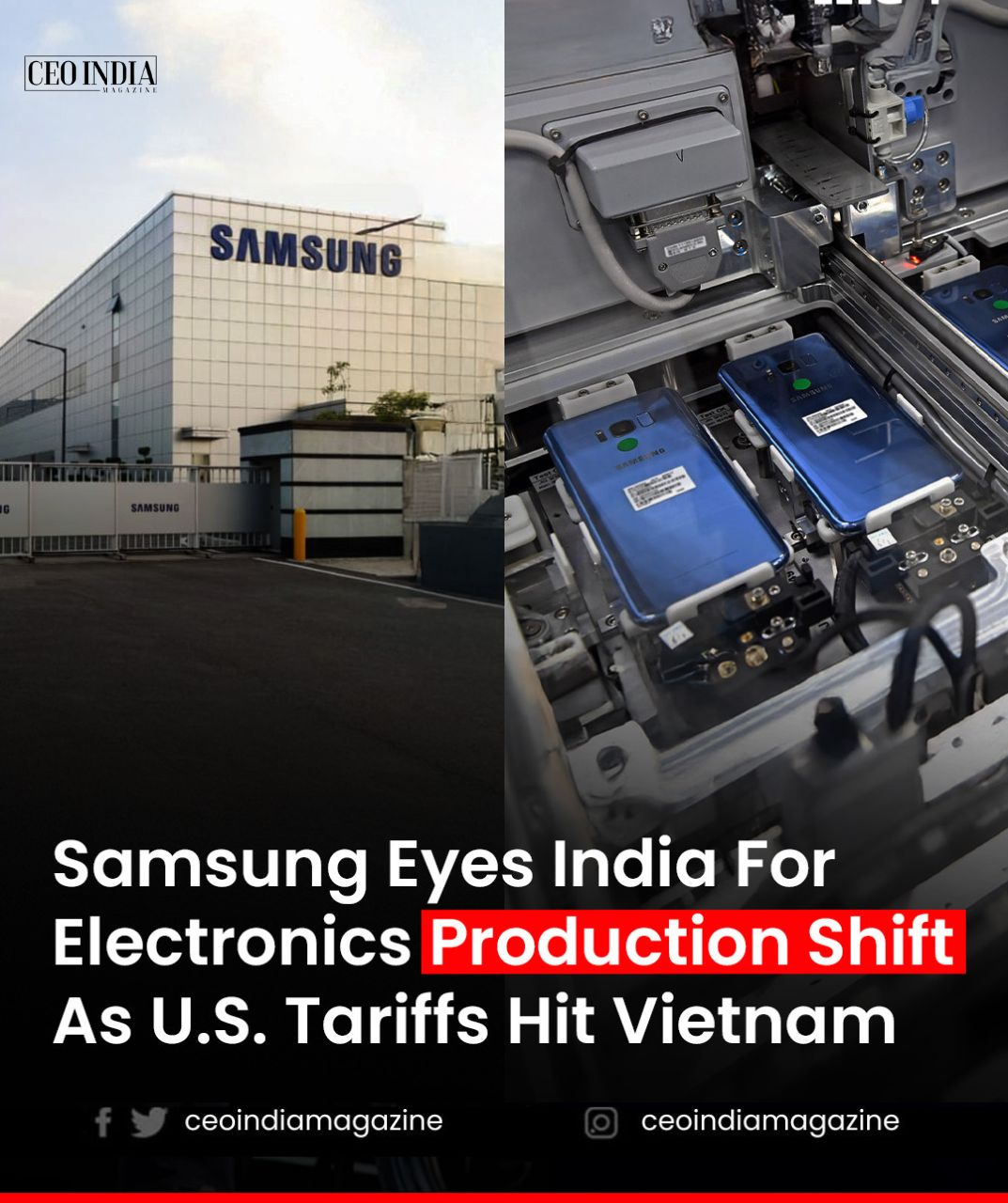In a significant geopolitical and business development, South Korean tech giant Samsung is reportedly exploring options to shift a part of its smartphone and electronics manufacturing operations from Vietnam to India. This strategic move comes in the wake of sweeping retaliatory tariffs imposed by the United States on goods imported from Vietnam, prompting global tech companies to reassess their supply chain dependencies.
The United States, citing trade imbalances and concerns over intellectual property protection, recently implemented a set of stringent tariffs on a range of Vietnamese exports, including electronics and components critical to smartphone manufacturing. These tariffs, although accompanied by a three-month pause, have sent ripples through the global supply chain, especially in the tech sector, which heavily relies on Vietnamese manufacturing hubs.
Read Also :- Cars24 Acquires Team-BHP to Strengthen Tech and AI Capabilities in Automotive Space
Samsung, one of the world’s largest smartphone and consumer electronics manufacturers, has a significant production base in Vietnam. The country has served as a central manufacturing hub for Samsung’s global operations, particularly for smartphones, tablets, and various electronic components. However, with the introduction of tariffs, the cost-effectiveness of operating in Vietnam has come under scrutiny.
Sources close to the development reveal that Samsung has initiated early-stage discussions with Indian electronics manufacturing service (EMS) providers to explore the feasibility of relocating a portion of its production lines. These discussions are said to involve both contract manufacturers and Indian government representatives, with incentives under India’s Production-Linked Incentive (PLI) scheme playing a key role in drawing interest.
India, which has been aggressively positioning itself as an alternative global manufacturing hub under the “Make in India” initiative, is seen as a favorable destination for electronics manufacturing. The PLI scheme, aimed at boosting domestic manufacturing and exports, offers substantial financial incentives to companies that scale production in India.
By moving some of its operations to India, Samsung stands to benefit from tariff advantages, a growing skilled workforce, and proximity to a rapidly expanding consumer market. Moreover, this move could strengthen Samsung’s local supply chain capabilities, reduce dependence on any single geography, and align with broader strategies of supply chain diversification that many global corporations are currently pursuing.
Experts believe this shift, if materialized, could significantly bolster India’s position in the global electronics manufacturing ecosystem. It would also bring substantial economic benefits, including job creation, technology transfer, and increased foreign direct investment (FDI).
However, challenges remain. India’s manufacturing infrastructure, while improving, still lags behind in some aspects compared to Southeast Asian nations. Streamlining regulatory approvals, improving logistics, and ensuring consistent quality standards will be crucial in convincing global players to make the leap.
As the world watches how the trade tensions between the US and Vietnam unfold, companies like Samsung are using the temporary pause in tariffs as a critical window to rethink their global strategies. If Samsung proceeds with this shift, it could mark the beginning of a larger trend in the tech industry, where India emerges as a key player in global supply chains amid shifting geopolitical currents.










Leave a comment